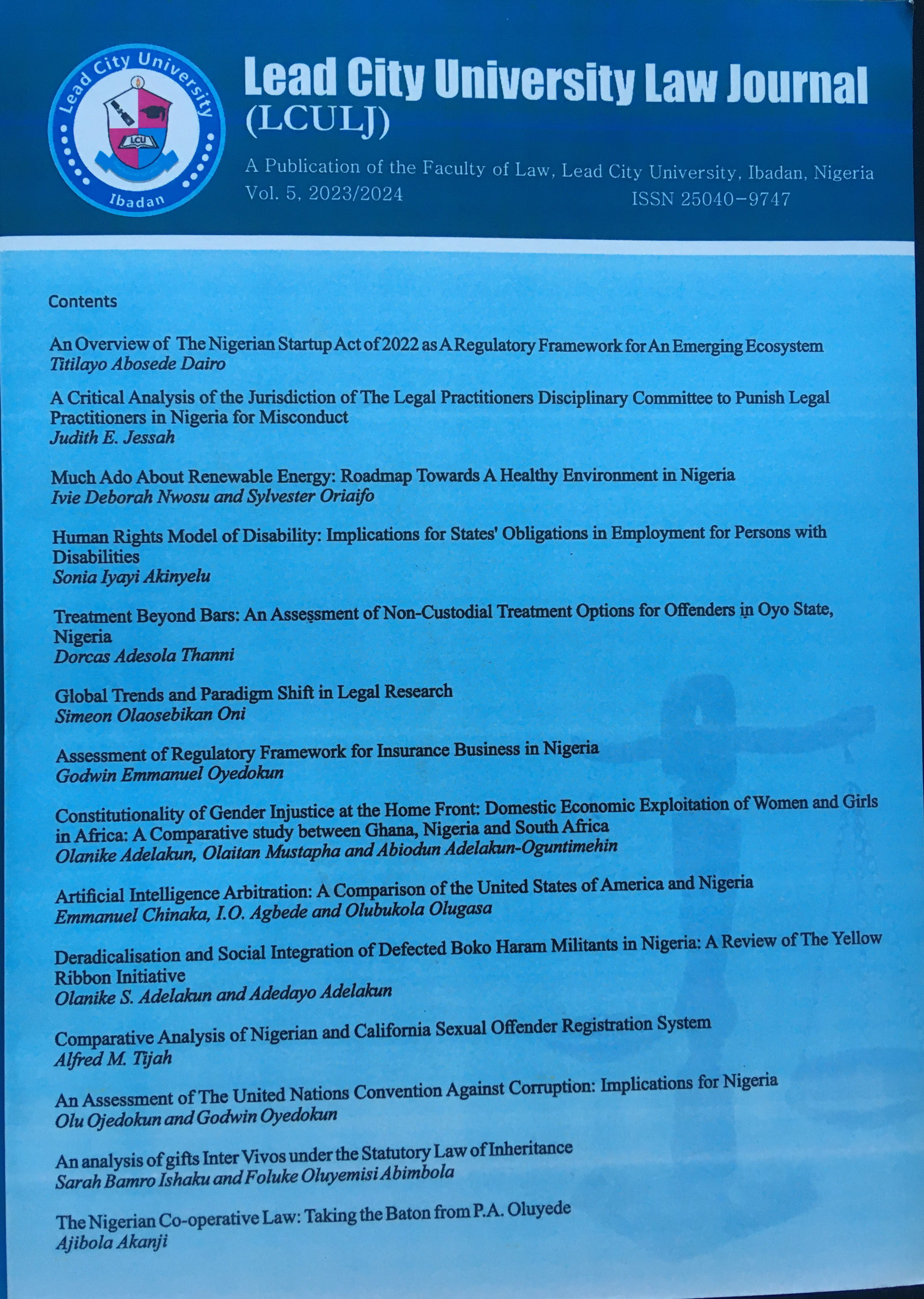An Assessment Of The United Nations Convention Against Corruption: Implications For Nigeria
Keywords:
Enforcement, Corruption, Governance, Law, United nations conventionAbstract
This paper explores corruption themes that are enforcement-related. The United Nations
Convention Against Corruption (UNCAC) is an international instrument used to prevent and
combat corrupt global practices. It was adopted by the United Nations General Assembly in
October 2003 and entered into force in December 2005. Nigeria, a state party to the UNCAC,
signed the treaty on the 9th of December 2003 and ratified it on the 24th of October 2004. The
UNCAC is yet to be domesticated in Nigeria in accordance with the provisions of the
Constitution. It is apposite to note, however, that several pieces of legislation complying with
different provisions of the UNCAC have been enacted into law by the National Assembly and
States Houses of Assembly, and several implementation structures have been set up in view of
such legislation. The UNCAC is unique forits worldwide coverage and the scope of its provisions,
which include but are not limited to preventive and punitive measures. It calls on civil society
and non-governmental organizations to participate in the accountability process. Most
importantly, these organizations work together to fight corruption by making provisions for
international cooperation amongst state parties.

